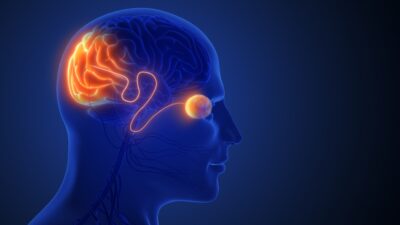
Category: Diet

Dietary Components That Affect Blood Pressure
While some people must take medication to reduce their blood pressure in order to preserve their healthspan and lifespan, it is usually recommended to try diet- and exercise-based approaches first.

Apple Cider Vinegar: Benefits, Myths, and Side Effects
Apple cider vinegar has been touted as a useful and effective natural remedy for centuries, with claims of its ability to cure or treat numerous ailments and health conditions. The

Intermittent Fasting and Time-Restricted Feeding
Intermittent fasting (IF) is an eating pattern that cycles between periods of fasting and eating. It doesn’t specify which foods to eat but rather when they are eaten. The primary

Low Glycemic Index Diets
The glycemic index was developed in 1980 by a group of researchers at the Food and Nutrition Science Department at the University of Toronto [1]. It was developed when establishing

Vitamin K2 Uses and Possible Side Effects
Vitamin K is not a single vitamin but a family of fat-soluble vitamins with a common core structure [1]. Members of this family can be divided into two groups: phylloquinone

Is Coffee Good or Bad for You?
Coffee contains hundreds of biologically active compounds that influence long-term health. Coffee consumption is associated with lower all-cause and cardiovascular (CV) mortality as well as protection from diabetes, cardiovascular disease,

Fasting And Aging
In this review, we explore the practice of fasting and how it differs to caloric restriction. What Is Fasting? Simply put, to fast is to abstain from eating for a

What Is Caloric Restriction?
In this review, we take a look at the practice of caloric restriction and how it differs from fasting. What is caloric restriction? In the broadest sense, caloric restriction

Dietary Components That Affect Blood Pressure
While some people must take medication to reduce their blood pressure in order to preserve their healthspan and lifespan, it is usually recommended to try diet- and exercise-based approaches first. While excessive sodium is often a significant culprit in hypertension, controlling sodium intake is far from

Apple Cider Vinegar: Benefits, Myths, and Side Effects
Apple cider vinegar has been touted as a useful and effective natural remedy for centuries, with claims of its ability to cure or treat numerous ailments and health conditions. The first known people to use apple cider vinegar as a remedy were the ancient Babylonians, dating

Intermittent Fasting and Time-Restricted Feeding
Intermittent fasting (IF) is an eating pattern that cycles between periods of fasting and eating. It doesn’t specify which foods to eat but rather when they are eaten. The primary focus is on the timing of meals, with the goal of promoting health benefits, weight loss,

Low Glycemic Index Diets
The glycemic index was developed in 1980 by a group of researchers at the Food and Nutrition Science Department at the University of Toronto [1]. It was developed when establishing dietary recommendations for diabetic people. The glycemic index measures how quickly foods cause blood sugar to

Vitamin K2 Uses and Possible Side Effects
Vitamin K is not a single vitamin but a family of fat-soluble vitamins with a common core structure [1]. Members of this family can be divided into two groups: phylloquinone (Vitamin K1) and menaquinones (Vitamin K2). The entire family assists vitamin K-dependent carboxylase, which is an

Is Coffee Good or Bad for You?
Coffee contains hundreds of biologically active compounds that influence long-term health. Coffee consumption is associated with lower all-cause and cardiovascular (CV) mortality as well as protection from diabetes, cardiovascular disease, neurodegenerative diseases, liver diseases, cancer, and asthma. Additionally, coffee may improve fertility [1,2]. Three or four

Fasting And Aging
In this review, we explore the practice of fasting and how it differs to caloric restriction. What Is Fasting? Simply put, to fast is to abstain from eating for a given amount of time. Fasting has gained considerable notoriety in the scientific literature due to its

What Is Caloric Restriction?
In this review, we take a look at the practice of caloric restriction and how it differs from fasting. What is caloric restriction? In the broadest sense, caloric restriction can mean simply a reduction in the amount of calories consumed, relative to an individual’s typical





